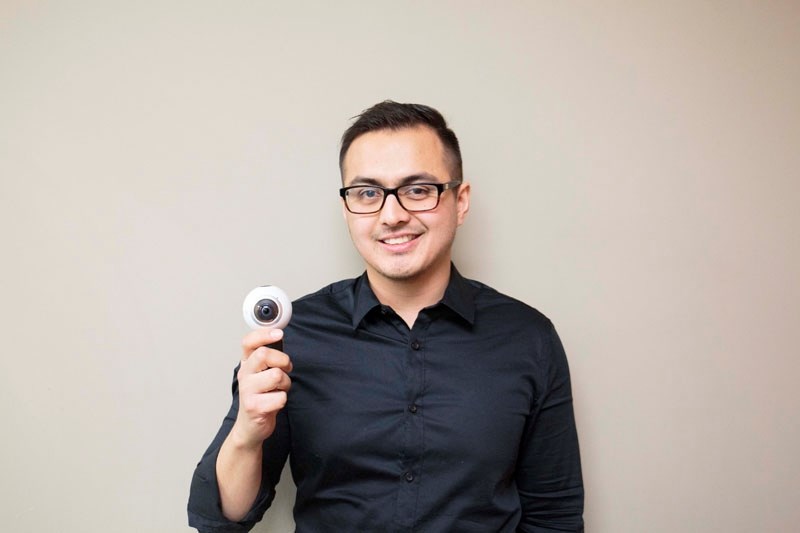Consumers could soon see the inside of a store or restaurant without even leaving home.
A new pilot project has some businesses trying out virtual reality as a way to enhance the customer experience.
Harold Pacheco, a marketing specialist with the St. Albert economic development department, says virtual reality may help local businesses stay competitive.
“Virtual reality is becoming the next big thing in the retail experience. So if we can help get them get a foot in the door and try it out at really no cost to them, maybe it could be something that they explore in the future,” he explains.
Businesses participating in the pilot project will have 360-degree photos and video footage taken of inside their businesses. They can then upload the footage to their website, social media or YouTube for viewing.
If all goes well, the business could then decide to embark on their own virtual reality journey after the pilot project finishes at the end of the year.
Pacheco says the department is constantly seeking new ways to enrich the business atmosphere in St. Albert. The pilot project is targeting retail businesses, such as restaurants and clothing stores, to try out the technology.
Virtual reality will up the ante for restaurants in particular, as the atmosphere of a restaurant is a main element of the customer experience. Now consumers will be able to compare restaurants and choose where to eat prior to leaving home.
“You ‘walk’ in, you can see the seating layout, you can see the lighting, you can kind of tell if it’s the kind of place that you want to bring your family to, or if you want to bring a date,” he explains.
Pacheco says that while it’s an exciting business venture, virtual reality might not be for everyone. Businesses will need to have some technical know-how to operate the technology, and start-up costs can be unappealing.
However, if more businesses start using the technology, virtual and augmented reality could be the new way of the future, Pacheco says.
So far a few businesses have stepped forward to participate in the pilot project.
Gary Takhar, owner of Rockland Supplies, says he decided to try the pilot project as a way to enhance the customer experience.
“We have always said that we want create a positive and worthwhile experience for customers when they shop with us and not just have a simple transaction,” he explains.
Rockland Supplies offers a wide range of landscaping supplies. He says virtual reality will help people decide what might look good in their yard prior to coming to the store and being overwhelmed with all the options available.
Angela Phelps, co-owner of Cranky’s Bike Shop, said the pilot project is a “great way for people to get an idea of what our store is like before coming in.”
“First impressions are always important so it’s a great way for us to showcase our shop and then they can decide if it’s somewhere they’d like to visit,” she says.
Further in the future, businesses may be able to try out augmented reality in St. Albert. Augmented reality overlaps a computer-generated image with a user's view of the real world. Pokémon Go is an example of a phone app which overlays an image of a creature on the grass in front of the player on their phone screen.
For businesses, they could put furniture or clothing on an app, where consumers could “place” furniture in their households or “try on” clothes at home. The customer could then make an informed decision of what to buy and from where.
For more information about the pilot project contact Pacheco at 780-459-1630.




